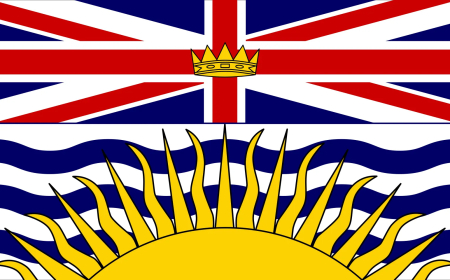How to Apply to University in Canada
Learn how to apply to university in Canada with this step-by-step guide. Find out admission requirements, application deadlines, and tips for international and domestic students to successfully navigate the Canadian university system.

Applying to university in Canada is a critical step for both domestic and internation- al students seeking higher education opportunities. The Canadian post-secondary education system is known for its diverse range of institutions, primarily universities and colleges, each offering unique academic paths and qualifications. Universities focus on degree programs across various disciplines, including arts, sciences, and professional fields, while colleges emphasize applied and technical education. This dual structure provides students with the flexibility to choose an educational pathway that aligns with their career aspirations and interests.
The application process for universities in Canada can be complex and compet- itive, requiring prospective students to meet specific admission criteria, such as completing high school with strong academic performance, submitting standardized test scores, and often providing additional documentation like personal statements and letters of recommendation. Admission requirements vary significantly across provinces and institutions, reflecting the unique values and academic standards
of each university. This variability necessitates thorough research by applicants to understand the expectations of their chosen institutions, particularly for international students who may face additional hurdles, such as language proficiency and visa regulations[1][2].
Financial considerations also play a crucial role in the application process. Tuition fees for international students have seen significant increases in recent years, necessitating careful budgeting and planning. In addition to tuition, students must demonstrate their financial capability to cover living expenses and adhere to proof of funds requirements imposed by immigration authorities[3][4]. Many universities offer scholarships and financial aid opportunities, which can alleviate some of the financial burdens associated with studying in Canada.
Controversies surrounding the university application process in Canada often center on issues of accessibility and equity. Critics argue that the high costs of education and varying admission standards may disadvantage marginalized groups and internation- al students. Efforts to reform these practices continue, as educational stakeholders strive to create a more inclusive environment for all prospective students[5][6].
Types of Universities
In Canada, the post-secondary education system consists of two primary types of institutions: universities and colleges, each serving distinct educational purposes and offering different qualifications.
Universities
Canadian universities are degree-granting institutions that provide both undergradu- ate and graduate programs. They typically emphasize academic and research-ori- ented disciplines, offering a broad array of fields such as the arts, humanities, social sciences, natural sciences, and professional programs like law and medicine. Admission to these universities can be competitive, requiring high school completion, standardized test scores, and often a combination of extracurricular activities and personal essays[1][2]. Many universities assess applicants holistically, considering not just academic achievements but also the potential contributions to campus life[1].
Colleges
In contrast, colleges in Canada focus on applied and technical education, primarily offering programs related to trades, technology, and health sciences. These institu- tions usually provide certificates, diplomas, and applied degrees, which are shorter and more specialized than university degrees[1]. Admission requirements for college programs can vary widely depending on the specific program and are generally more tailored to the practical skills associated with the field of study.
Application Processes
The application process for both universities and colleges can vary significantly across provinces. Some provinces utilize a central application service, while others require direct applications to the institutions. Therefore, it is crucial for prospective students to thoroughly research each institution's requirements and application pro- cedures, especially if they are international students who may have additional criteria to meet[1][7].
When choosing a university or college, students should consider various factors such as program offerings, institutional reputation, and alignment with their academic and career goals[2][8]. Each university has its unique strengths, and students are encouraged to explore these aspects before making a final decision.
Admission Requirements
Admission requirements for universities in Canada vary widely depending on the institution and the specific program of study. Generally, all applicants must complete high school and obtain a secondary school diploma, with most programs requiring a minimum overall final average of 65% to 70% in their courses[9][10].
General Requirements
Students typically need to graduate from high school with a university preparatory program. The minimum requirement often includes achieving a 70% average in En- glish and three or four additional academic courses at the grade 12 level, depending
Program-Specific Requirements
Certain programs may have specific prerequisite courses that must be completed prior to admission. For example, applicants to science or engineering programs are strongly encouraged to take at least one math and one science course in their grade 12 year[11][12]. Furthermore, competitive programs may set higher admission standards based on the performance of the applicant pool in any given year[13].
Admission Review Process
The admission process involves a comprehensive review of several factors bey- ond academic records. While school grades are crucial, universities also consid- er non-academic credentials such as personal statements, portfolios, interviews,
and extracurricular activities, especially for competitive programs[13][12]. As admis- sion requirements can change annually based on competition for available spots, prospective students are advised to check specific program details closely[14][13].
Early Admission Considerations
For early admission based on in-progress high school grades, students are required to submit their most recent transcripts. If final grades for grade 12 courses are
By thoroughly understanding these admission requirements, prospective students can better prepare their applications and increase their chances of securing a place in their desired program.
Application Process
The application process for universities in Canada involves several key steps that prospective students must follow to ensure their admission.
Financial Considerations
When applying to universities in Canada, understanding the financial aspects is crucial for international students. This section outlines the various costs involved, proof of funds requirements, and strategies for budgeting and financial management.
Tuition Fees and Living Expenses
Tuition fees for international students can vary significantly depending on the program and institution. For the 2019/20 academic year, the average tuition fee for undergradu- ate international students was approximately CA$29,714 (~US$22,500) per year[15]. By 2024/25, this average has risen to over CA$40,000, reflecting a 5% increase from previous years[3]. Generally, tuition can range from CA$7,000 to CA$22,000 annually, with specific fields such as medicine and engineering often being more expensive[16][4]. Additionally, students should budget for living expenses, which may require between CA$13,000 and CA$40,000 annually[4].
Proof of Funds Requirement
As part of the application process, prospective international students must demon- strate their financial capability to cover tuition and living costs. The current proof of funds requirement stands at CA$20,635, plus first-year tuition and travel expenses- [3]. Documentation that can support an application includes bank statements from the past four months, proof of payment for tuition and accommodation, a bank draft in convertible currency, letters from sponsors, or scholarship confirmations[17][18]. Family or friends may also provide letters of support affirming their commitment to financially assist the student during their studies.
Budgeting Strategies
Effective budgeting is essential for managing costs while studying in Canada. Stu- dents can employ strategies such as the 50/30/20 rule, allocating 50% of their budget to needs, 30% to wants, and 20% for savings[2]. It is also advisable for students to familiarize themselves with currency exchange rates before arriving in Canada, as monetary differences can impact overall budgeting[19]. Using online budgeting tools and seeking advice from financial institutions can further assist students in managing their finances[19].
Financial Aid and Scholarships
Although securing financial aid can be competitive, students should explore various funding opportunities provided by universities and external organizations. It's recom- mended that applicants apply for multiple scholarships to increase their chances of receiving financial support, as relying solely on a single source can be risky[5][6].
Understanding the actual costs associated with studying in Canada and planning accordingly can mitigate potential financial stress during the academic journey[20].
By preparing in advance and implementing sound financial strategies, international students can better navigate the financial landscape of their university education in Canada.
Visa and Immigration Requirements
To study at a university in Canada, international students must comply with specific visa and immigration requirements. These requirements vary depending on the
Types of Visas
Study Permit
A Study Permit is required for international students planning to enroll in programs longer than six months. This permit allows students to legally reside in Canada while they study. Students must obtain a letter of acceptance from a designated learning institution (DLI) and may need to submit a provincial attestation letter to support their application for the Study Permit starting from January 22, 2024[21][22].
Temporary Resident Visa (TRV)
For students from countries that are not visa-exempt, a Temporary Resident Visa (TRV) is necessary alongside the Study Permit. This visa allows students to enter Canada for their studies[23].
Application Process
Determine Visa Necessity: Prospective students should first consult the Travel advice and advisories page to determine whether they need a visa or any other travel authorization before applying[24].
- A valid passport
- Proof of acceptance from a DLI Provincial Attestation Letter (PAL)
- Proof of sufficient financial resources (minimum CAD 10,000/year outside Quebec) Medical examination certificate (if required)
- Statement of Purpose (SOP) essay[25][26][27].
Financial Requirements
Applicants must demonstrate financial stability to support their studies and living expenses in Canada. This includes showing proof of funds for tuition and living expenses, as well as securing a Guaranteed Investment Certificate (GIC) for certain visa types[28].
Arrival in Canada
Upon arrival, students may experience longer processing times at border control as they complete the necessary paperwork. A border services officer will assist in final- izing the Study Permit application and ensure all documentation is in order[28][29].
Challenges Faced by International Students
International students in Canada encounter a variety of challenges that can impact their academic and personal lives. These challenges range from financial burdens to cultural adjustments, each presenting unique hurdles to overcome.
Financial Management
One of the primary challenges faced by international students is managing finances. Costs associated with food, rent, and other living expenses can accumulate quickly, often leading to financial strain. Many students may not have adequately planned their budgets prior to their arrival, and as a result, they may seek financial assistance only after facing significant difficulties.[19]
Financial counseling is available at numerous post-secondary institutions, providing students with the support needed to develop effective budgeting strategies early in their studies.[19] Furthermore, international students must be aware of the differences in currency and tax systems, which can complicate their financial planning. In Canada, for instance, taxes are not included in the displayed prices of goods, requiring students to account for additional costs when budgeting.[19]
Cultural Adjustment
Cultural shock represents another significant hurdle for international students. The differences in social norms, food, and interaction styles can be overwhelming, causing feelings of isolation and stress. Students may find it challenging to adapt to these new customs, which can affect their academic performance and social interactions.[30]
To combat culture shock, it is essential for students to engage with Canadian culture actively. Participation in local events, joining clubs, and making connections with local peers can help mitigate feelings of loneliness and facilitate a smoother transition into Canadian society.[31]
Language Barriers
For many international students, language barriers pose a substantial obstacle. While they may have studied the language for years, real-life conversational contexts often present unexpected challenges. This barrier can affect students' ability to communi- cate effectively in both academic and social settings, leading to misunderstandings and feelings of exclusion.[30] To improve language skills, students are encouraged to engage in conversations, practice with peers, and utilize available language support services offered by their institutions.
Mental Health and Well-being
The mental strain of adjusting to a new environment can be compounded by various stressors, including academic pressure and financial worries. Many international students report experiencing anxiety and homesickness, which can hinder their academic success and overall well-being.[31] It is vital for students to seek support services, including counseling and peer support networks, to navigate these emo- tional challenges effectively.
References
[1] : Step-by-Step Guide to Canadian Admissions - Crimson Education US
[2] : How to Get Accepted to Canadian Universities | BeMo®
[3] : Attending university in Canada: a guide for international students
[4] : How to Get Into University After Studying at an International High ...
[5] : Admission Requirements - Non-Ontario High School Student
[6] : Canadian High School Admission Requirements
[7] : Canadian High School Students | Trinity Western University
[8] : Understanding admission requirements | Undergraduate Programs
[9] : How We Make Decisions | Admissions & Student Recruitment [10]: International High School Requirements by Country
[11] : How to Apply to a University in Canada as an International Student
[12] : Documents required to apply to Universities in Canada
[13] : Step-by-Step Guide for University Applications - Embark
[14] : How much does it cost to study in Canada? | Top Universities
[15] : The Cost of an International Education in Canada in 2024
[16] : Study costs for international students in Canada - EduCanada
[17] : Cost of Study, Living & University fees in Canada - IDP Education
[18] : How to Get a Canadian Study Permit | Canadavisa.com
[19] : 5 Challenges of International Students in Canada - Abroadin
[20] : 10 Common Mistakes International Students Make When Applying ...
[21] : Full Program Cost Estimates for International Students
[22] : [PDF] Experiences of International Students at a Canadian University - ERIC
[23] : How to Study in Canada, Work, and Immigrate - Canadavisa.com
[24] : Applying for a Study Permit - Office of Global Services
[25] : Information about Canada | ISSC - ASU's International Students and
[26] : Visas, biometrics and electronic travel authorizations
[27] : Essential checklist for international students in Canada
[28] : Study permit: Get the right documents - Canada.ca
[29] : How to apply for university in Canada? Everything you need to know [30]: Information for international students
[31] : Eligibility & Requirements to Study in Canada for International ...
[32] : Challenges Faced by International Students in Canada - Jeduka.com
: The International Students Crisis in Canada: A Northern Perspective









































